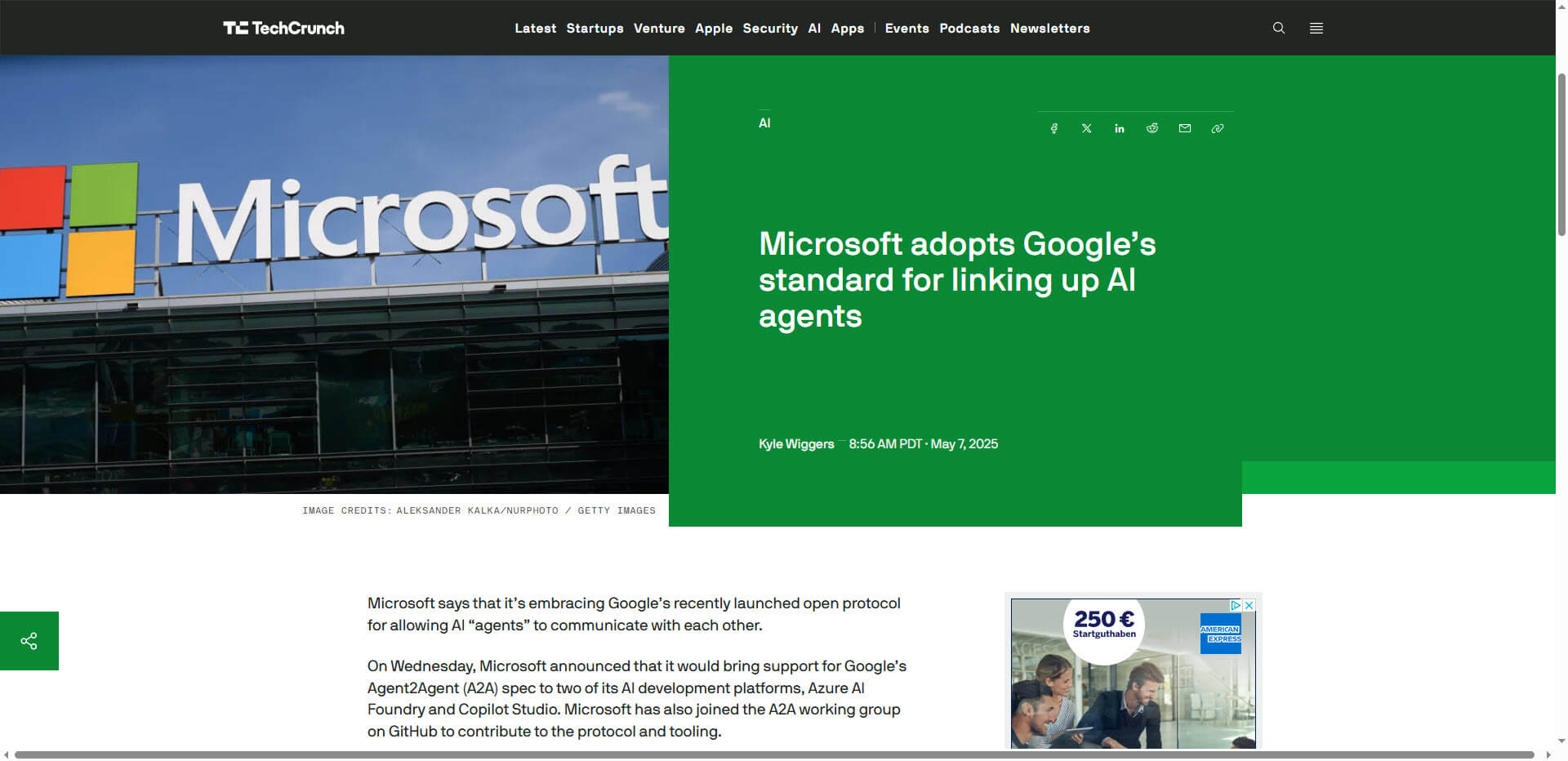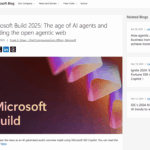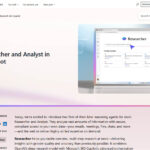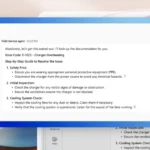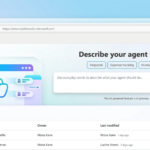In a significant development for AI ecosystems, Microsoft has announced the implementation of Google’s Agent2Agent (A2A) protocol. This strategic move enables the integration of Azure AI Foundry and Copilot Studio with external AI agents – including those based on non-Microsoft platforms.
The launch marks a turning point in AI development as it standardizes cross-platform collaboration between different AI systems. According to industry data, 65% of companies are already piloting AI agents and the market is expected to grow from €7.84 billion in 2025 to over €52 billion by 2030. The A2A integration positions Microsoft at the forefront of a transformative change in AI development.
Technical basics of the A2A protocol
The A2A protocol is based on HTTP, JSON-RPC and Server-Sent Events (SSE) and provides a universal framework for communication between agents. The architecture enables AI agents:
- Discover capabilities via JSON-formatted “agent cards”
- Exchange unstructured data such as text, images and audio
- Manage long-term tasks with real-time progress updates
Integration with Microsoft products allows, for example, a Teams agent to schedule a meeting and simultaneously call a Google Workspace agent to compose emails. This interoperability significantly reduces redundancies.
Market impact and industry reactions
The KPMG survey from the first quarter of 2025 shows that the use of AI agents in companies is increasing dramatically. Use cases include:
- Supply chain automation (78%)
- Administrative tasks (66%)
- AI-supported call centers (61%)
Microsoft joins over 50 A2A contributors, including Salesforce, SAP and Oracle. This coalition signals a move away from competition towards cooperation, with competitors collaborating on basic standards and differentiating at the application level.
Executive Summary
- Microsoft integrates Google’s open A2A protocol into Azure AI Foundry and Copilot Studio
- Standardization enables cross-platform communication between AI agents from different providers
- The protocol is based on established technologies such as HTTP and JSON-RPC with a focus on security
- The market for AI agents is expected to grow to over 52 billion euros by 2030
- The development marks a paradigm shift from isolated to networked AI systems
- Challenges remain in governance and ethical issues such as accountability and bias
Source: TechChrunch

